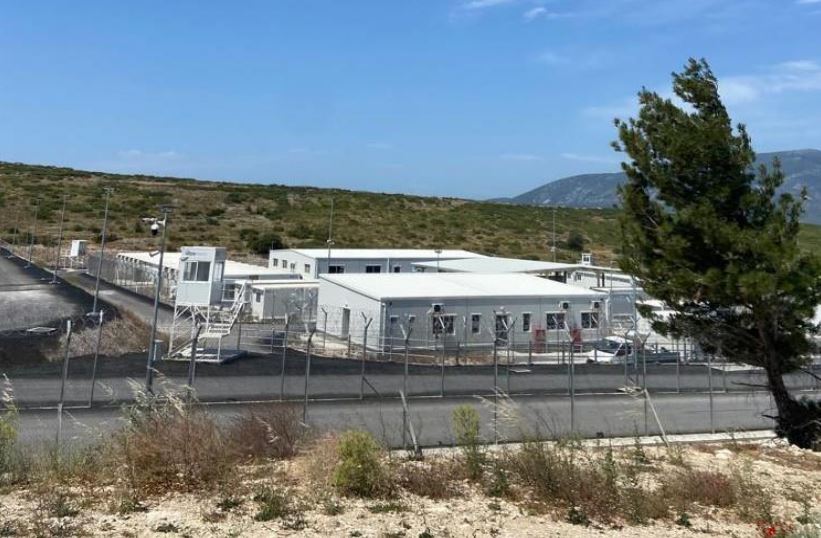
The research, based on monitoring activity by the ASGI and Spazi Circolari associations, details an inspection in Greece in June 2022 analysing the legislative provisions and practices concerning the right of asylum as implemented throughout Greece, with particular regard to access to the international protection procedure, border management, administrative detention and the role of organizations operating in the area.
The intensity of the migratory flows, as well as its Mediterranean location and geographical characteristics, have turned Greece in recent years into a laboratory for experimenting and perfecting European migration management policies, with the ever more explicit aim of reducing arrivals of third-country nationals in Europe.
Previous monitoring highlighted how various devices applied in Greece – such as bilateral agreements, the hotspot method, the concepts of “country of first asylum”, “safe third country” and “safe country of origin” as substantial aspects in procedural mechanisms, and the central role of European agencies – were indispensable tools in efforts to bring about a radical reduction in migration flows from Turkey to Greece.
Moreover, these devices also had and still have a decisive role as regards prospects for the reform of the European asylum system and border control, as well as externalisation processes for asylum procedures.
The strict regulations enforced on NGO activities we discovered during our inspection are an inevitable corollary of the practices and policies described above and encapsulate the entire system.
Given the isolation of migrants and the formal compliance with assurances, the activities of non-governmental organizations and self-organized civil society are limited and regulated.
In this context, the policy of criminalising NGOs and side-lining all players whose activities seek to “open” these centres and expose illegitimate practices implemented by the authorities is understandable. The limitation of their activities and the criminalization of NGOs, combined with the difficulties in accessing the people they seek to protect, has made it effectively impossible for them to work and many have left or are leaving the territory.
This means there are fewer or even no independent figures and observers who not only assist asylum seekers, but can also provide information and raise awareness among the population and the international community about the policies pursued by the Greek government.
The desire to keep the realities of migration and the resident population isolated from each other evidently precludes any risk of reciprocal influences. On the other hand, the presence of authorised NGOs and institutional organisations helps legitimise the actions of the Greek government.
The inspection in June 2022 confirmed previous impressions and revealed government policies further perfected towards limiting entry and stay by foreign citizens in Greece, thereby rendering the right to asylum null and void. This must therefore be the key to understanding the information collected and published in this report.
The research focused on studying and analysing the legislative provisions and practices concerning the right of asylum as implemented throughout Greece, with particular regard to access to the international protection procedure, border management, administrative detention and the role of organizations operating in the area. The research group was divided into six subgroups to perform inspection on the islands of Chios, Samos and Kos, and in the Evros, Athens and Thessaloniki areas. This report is therefore based on interviews with the people we met. In this regard, and with a view to neutrality, we have sought as far as possible to differentiate between institutional subjects, international organizations and non-institutional subjects, such as non-governmental organizations, lawyers and legal operators, and people working in the solidarity sector. In particular, the following interviews took place: A21 Greece, Arsis, Assist Asylum Seekers Information Services Team (A.Ss.I.S.T.), Avocats Sans Frontieres, Border Violence Monitoring Network, Caritas Greece, Chiaki Sympolitea, City of Athens – Directorate of Social Solidarity, Cooperativa Sociale Bedreddin, Diotima – Centre for Gender Rights & Equality, DRC Danish Refugee Council, EKKA National Center for Social Solidarity, ELENA European Legal Network on Asylum, Equal Legal Aid, Equal Rights Beyond Borders, Fenix aid, Flying Help, GRC Greek Council of Refugees, Human Rights 360°, Human Rights Legal Project, I Have Rights, Institute of Current World Affairs, Integration Center for Migrant Workers – Ecumenical Refugee Program, International Rescue Committee Intersos, IOM International Organization for Migration, Irida, Women Center, Just Action Samos, KEDU (UNHCR), Metadrasi, Mobile Info Team, MSF Médecins Sans Frontières, Municipality of Thessaloniki, Offende Arme, Open Assembly Evros, Quick response team, Refugee Biriyani Bananas, RLS Refugee Legal Support, RSA Refugee Support Aegean, Salvamento Maritimo Humanitario, Samos Volunteers, Selfm-aid, Solidarity Chios, Solidarity Now, Still I Rise, UNHCR (Offices in Athens, Chios, Kos, Thessaloniki and Samos), Vasilika Moon.
Photo: External view of the CCAC in Samos (2022)